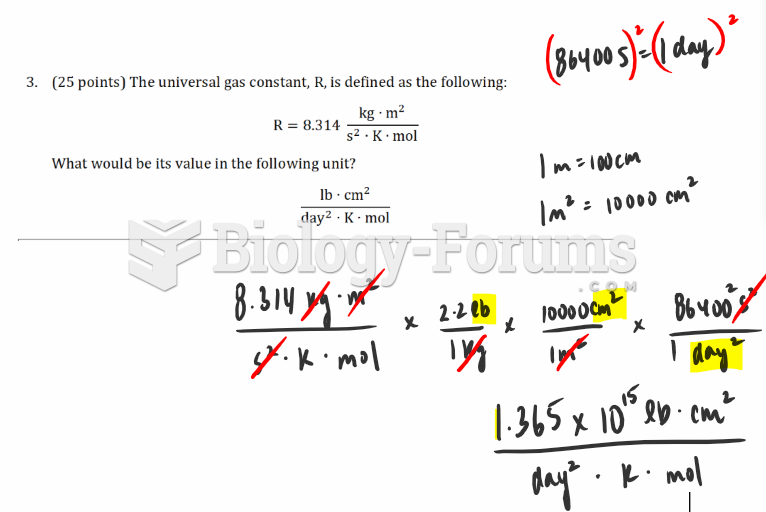This topic contains a solution. Click here to go to the answer
|
|
|
Did you know?
Your heart beats over 36 million times a year.
Did you know?
According to the CDC, approximately 31.7% of the U.S. population has high low-density lipoprotein (LDL) or "bad cholesterol" levels.
Did you know?
The effects of organophosphate poisoning are referred to by using the abbreviations “SLUD” or “SLUDGE,” It stands for: salivation, lacrimation, urination, defecation, GI upset, and emesis.
Did you know?
The highest suicide rate in the United States is among people ages 65 years and older. Almost 15% of people in this age group commit suicide every year.
Did you know?
The top five reasons that children stay home from school are as follows: colds, stomach flu (gastroenteritis), ear infection (otitis media), pink eye (conjunctivitis), and sore throat.
 Bioarchaeologists and forensic anthropologists use archaeological excavation techniques to recover r
Bioarchaeologists and forensic anthropologists use archaeological excavation techniques to recover r
 A typical variable cam timing control valve. The solenoid is controlled by the engine computer and ...
A typical variable cam timing control valve. The solenoid is controlled by the engine computer and ...





